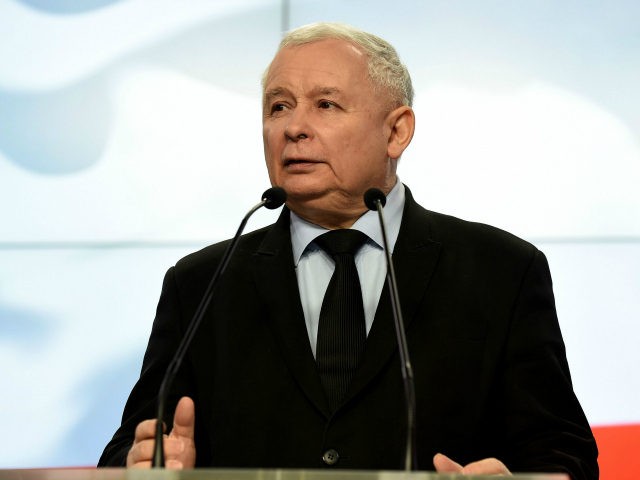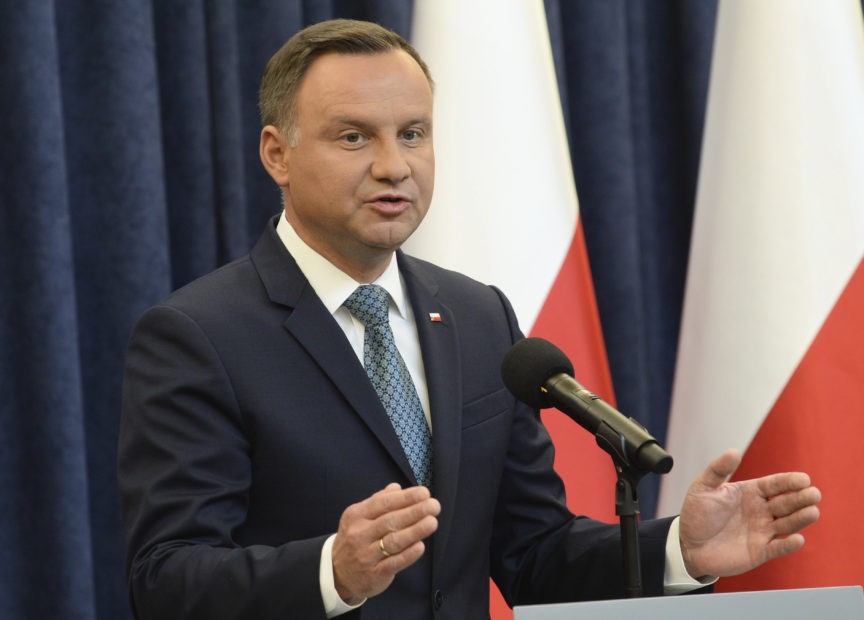Chairman of Poland’s ruling Law and Justice (PiS) party Jarosław Kaczyński has vowed to ignore the European Union’s threats and the veto of Polish President Andrzej Duda and push forward the controversial judicial reforms that have sparked protests across the country.
Mr Kaczyński said that the controversial reforms, that would see the supreme court appointed by the ruling party, would take place despite the heavy backlash from the European Union and the proposed veto of President Duda. He said Duda had made a “very serious mistake” in his first public comments since Duda had announced he would veto parts of the reform Reuters reports.
“This means there will be a reform, a radical reform … Partial reform won’t change anything,” Kaczyński told Polish broadcaster TV Trwam, though did not go any further into what steps he will take.
President Duda has said that he will introduce his own versions of the legislation he vetoed, which Kaczyński said he would wait to see. “The president has clearly said that he wants to take the initiative here and under no circumstances will we disturb him in this,” he said.
The tussle at the top of Polish politics comes as latest polling showing support for PiS rising, despite the negative reporting on the party giving emphasis to anti-government protests in the mainstream media. PiS was elected in 2015 as the first majority government in modern Polish politics — breaking the mould of no one party being popular enough to form a government alone.
Poland, Kantar poll:
PiS-ECR: 35% ↑
PO-EPP: 21% ↓
K'15-*: 11% ↑
N-ALDE: 10% ↑
SLD-S&D: 4% ↑
PSL-EPP: 3%
RAZ-*: 2% ↓
WOL-EFDD: 1% ↓— Europe Elects (@EuropeElects) July 26, 2017
Kaczyński, the leader of PiS and who some consider to be the most influential man in Polish politics is the twin brother of former Polish President Lech Kaczyński who died in an aeroplane crash in 2010.
The surviving Kaczyński said earlier this month that those resisting the reforms were “traitors” to the legacy of his brother.
Poland’s proposed reforms have led to large scale protests in various cities across the country and increased pressure from the European Union (EU) who have threatened to withdraw the country’s voting rights under Article 7.
EU Commission Vice-President Franz Timmermans said earlier this month that the political block was, “very close to triggering Article 7.”
Kaczynski dismissed the threats from the EU saying, “We will wait this month out. In the second phase of this procedure, a unanimous position is needed. And I am convinced that it will not be achieved,” adding that the move was simply “attempts to exert psychological pressure.”
The unanimous vote will likely not be achieved because Poland’s close ally and fellow Visegrad group member Hungary is also facing similar threats from the EU over its crackdown on foreign NGOs. The Hungarian government has started a broad campaign against left-wing billionaire George Soros and what they refer to as his “mafia network” of NGOs.
Hungarian Prime Minister Viktor Orban and his government have accused Soros and his organisations of wanting to promote open borders and unlimited mass migration. The government recently released a poster campaign targeting Soros’ influence which some criticised as anti-Semitic.
The anti-semitic charges fell away soon after the Israeli government said the posters were legitimate criticism of Soros and many pointed out that an Israeli MP of the ruling Likud party had also proposed a law to curb Soros money funding anti-Israel groups.


COMMENTS
Please let us know if you're having issues with commenting.